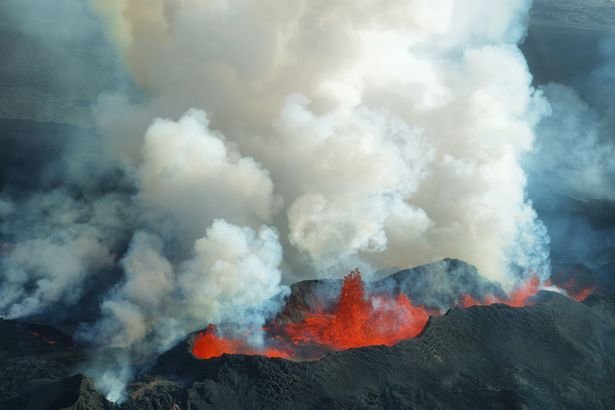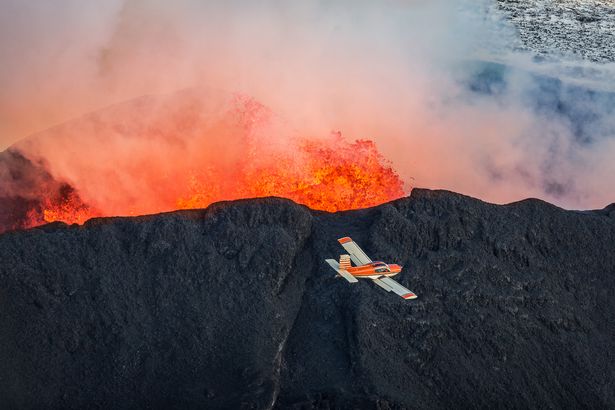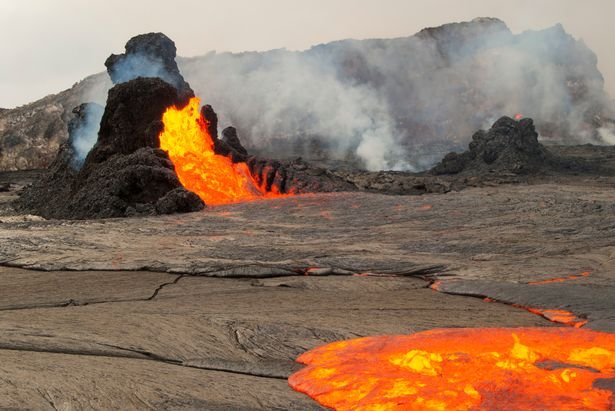
(Image: Moment RF)
We may be much nearer to a cataclysmic volcanic 'super-eruption' than previously thought, warns new research.
That is the conclusion of Bristol University scientists after analysing a database of geological records dated within the last 100,000 years.
They discovered the average time between so-called volcanic super-eruptions is actually much less than previously understood.
Volcanoes and 'bolides' - such as asteroids - are geohazards powerful enough to be destructive on a global scale.
One recent assessment described them as capable of returning humanity to a 'pre-civilisation' state.
The largest explosive eruptions are termed 'super-eruptions', and produce in excess of 1,000 gigatons of erupted mass - enough to blanket an entire continent with volcanic ash, and change global weather patterns for decades.
Researchers at Bristol's Schools of Earth Sciences and Mathematics estimated how often the largest explosive eruptions happen.

(Image: Stone Sub)
Their analysis indicates that the average time between super-eruptions is only slightly longer than the age of our civilisation - dating from the Agricultural Revolution 12,000 years ago.
Professor Jonathan Rougier said: "The previous estimate, made in 2004, was that super-eruptions occurred on average every 45 to 714 thousand years, comfortably longer than our civilisation.
"But in our paper just published, we re-estimate this range as 5.2 to 48 thousand years, with a best guess value of 17 thousand years."
According to geological records, the two most recent super-eruptions were between 20 and 30 thousand years ago.
Prof Rougier added: "On balance, we have been slightly lucky not to experience any super-eruptions since then.
"But it is important to appreciate that the absence of super-eruptions in the last 20 thousand years does not imply that one is overdue. Nature is not that regular.
"What we can say is that volcanoes are more threatening to our civilisation than previously thought."

(Image: Aurora Creative)
He said our civilisation will change in unimaginable ways over the next thousand years, and there are many other ways in which it might suffer a catastrophic blow well before the next super-eruption.
On that basis, Prof Rougier says there is little need to plan now for a super-eruption, especially with many other pressing issues to address, which will affect the current and the next generation of humans.
Regarding the findings, published in the journal Earth and Planetary Science Letters, Prof Rougier added: "As well as improving our understanding of global volcanism, our paper develops relatively simple techniques to analyse incomplete and error-prone geological and historical records of rare events.
"These difficulties are ubiquitous in geohazards, and we expect our approach will be used for reappraising other types of hazard, such as earthquakes."
SOURCE: http://www.mirror.co.uk/science/cataclysmic-super-eruption-much-closer-11606538
Congratulations @holistichealing! You have completed some achievement on Steemit and have been rewarded with new badge(s) :
Click on any badge to view your own Board of Honor on SteemitBoard.
For more information about SteemitBoard, click here
If you no longer want to receive notifications, reply to this comment with the word
STOPDownvoting a post can decrease pending rewards and make it less visible. Common reasons:
Submit
Hi! I am a robot. I just upvoted you! I found similar content that readers might be interested in:
http://www.mirror.co.uk/science/cataclysmic-super-eruption-much-closer-11606538
Downvoting a post can decrease pending rewards and make it less visible. Common reasons:
Submit